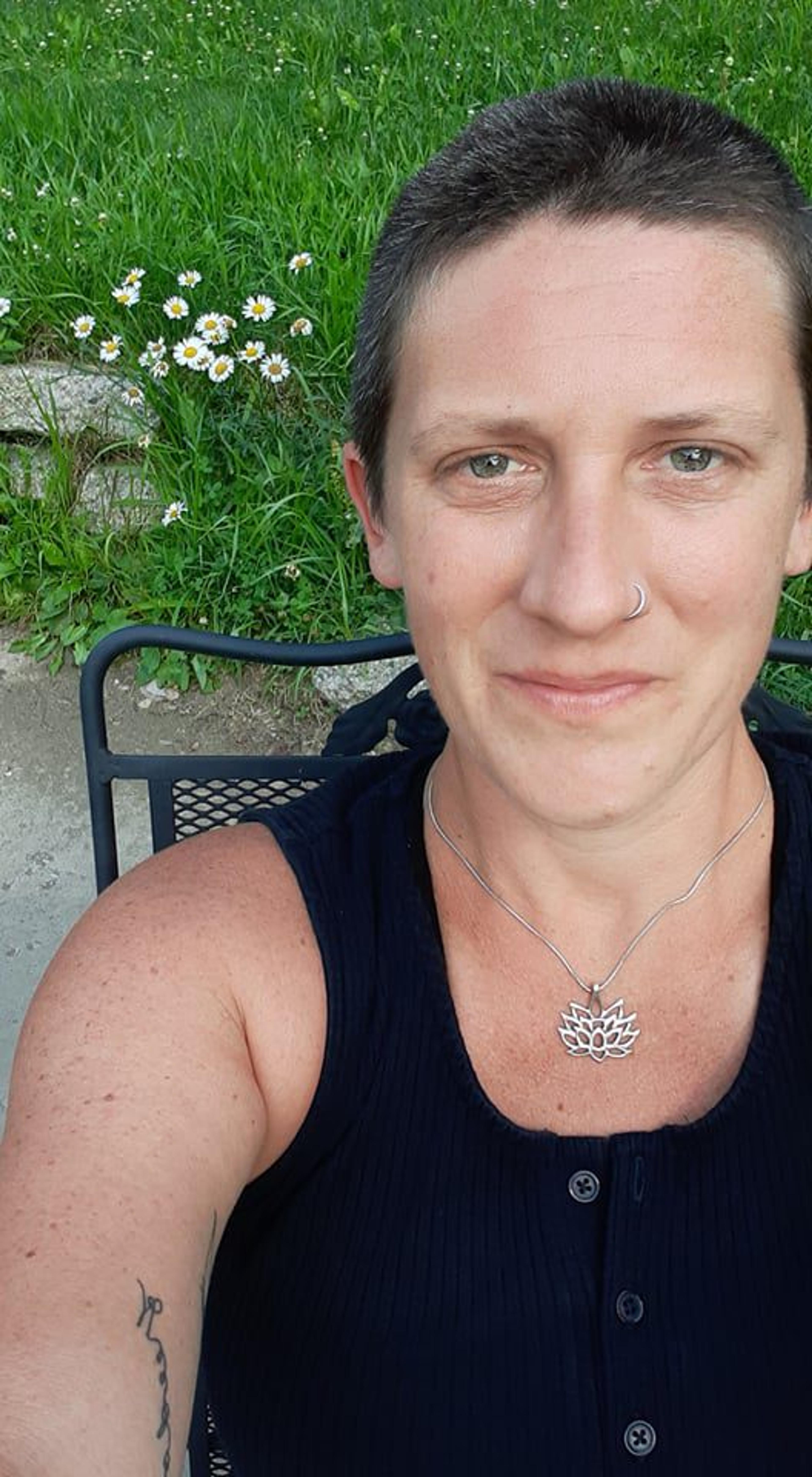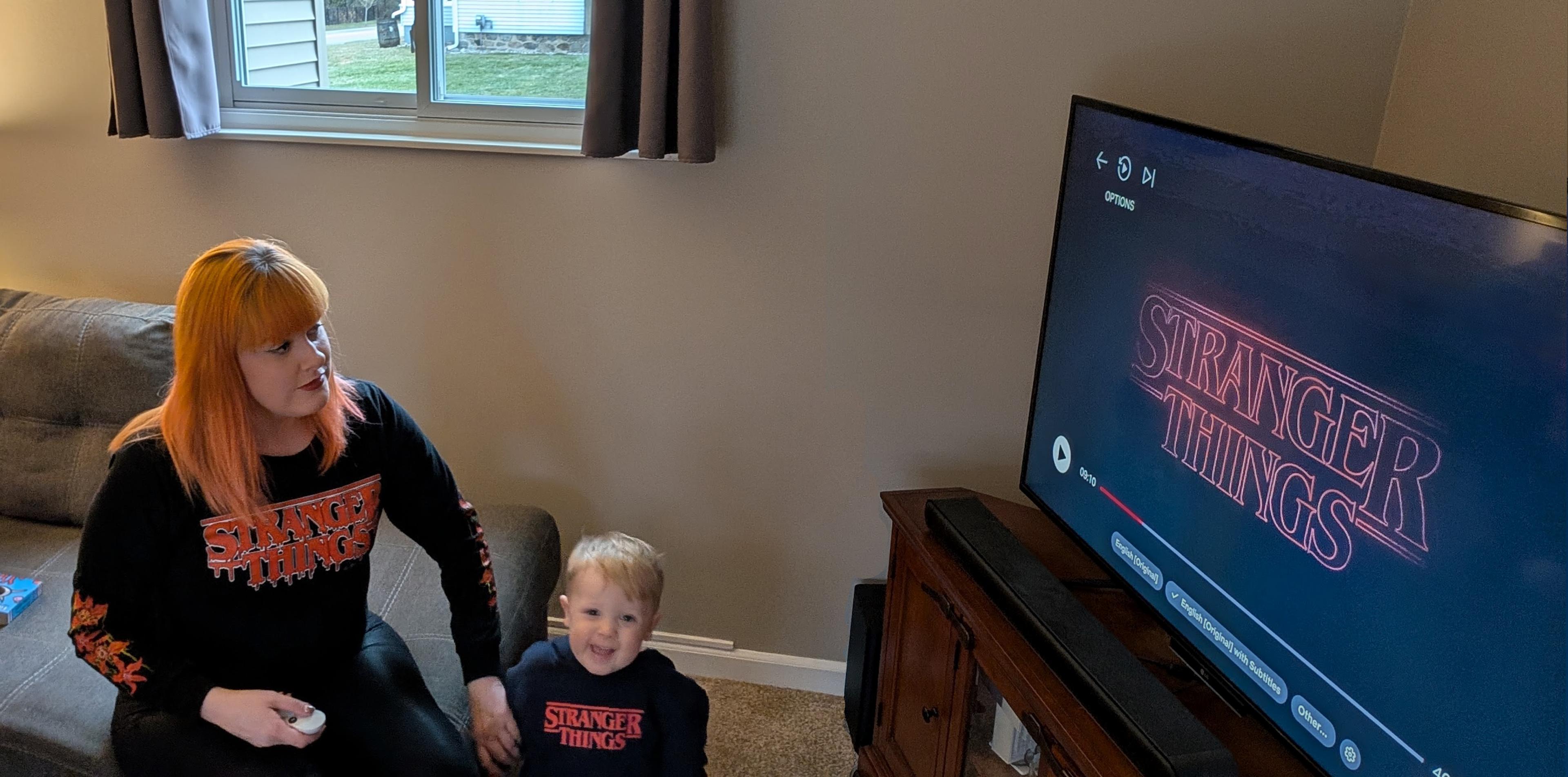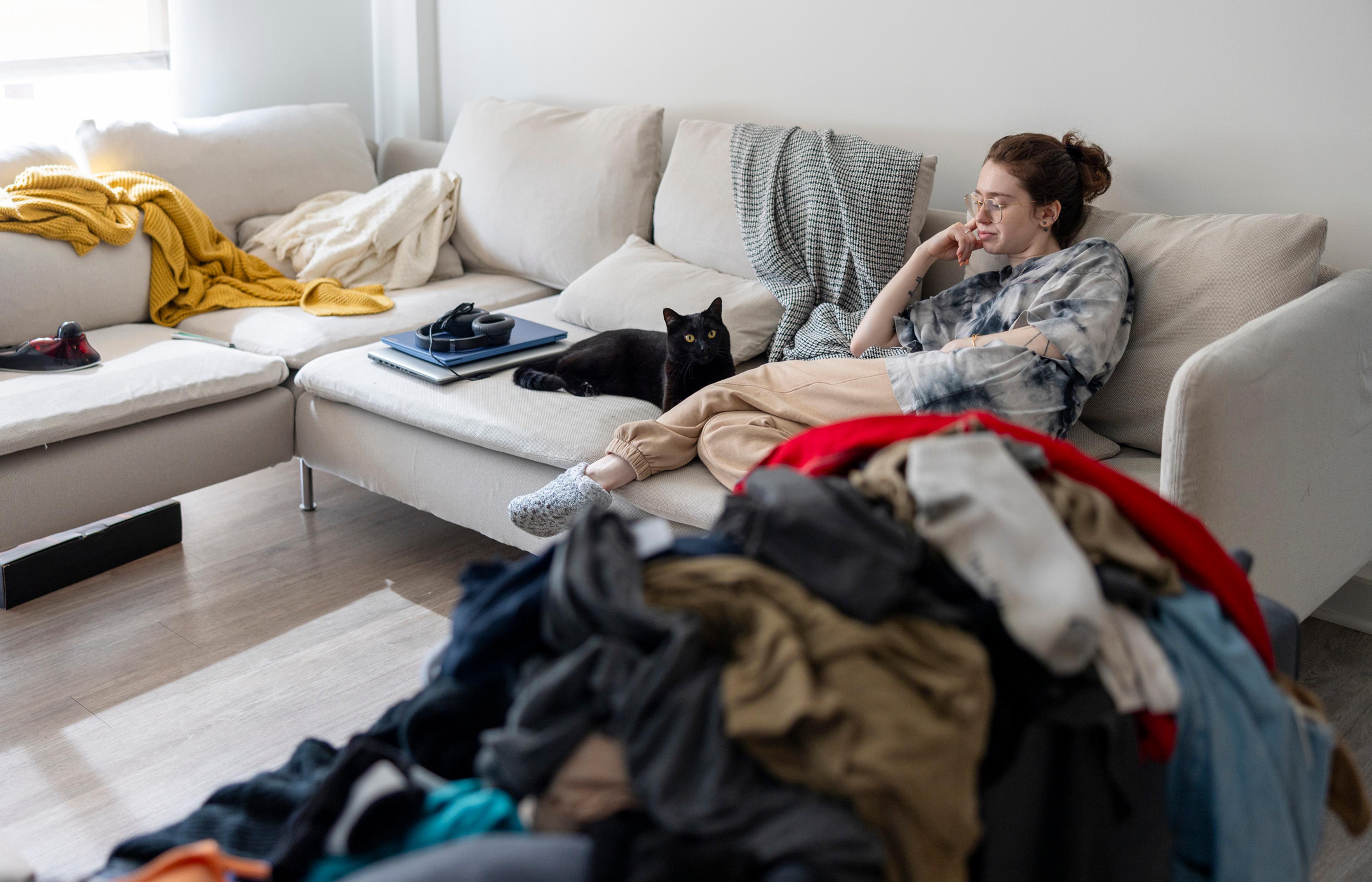Why Sharing Your Grief is Good for Your Mental Health
Shandra Martinez
| 4 min read

When Elizabeth Sanders became a widow at 34, she felt like all her best days were behind her. She and her husband, Mike, met in sixth grade and were together half their lives when he died 12 years into their marriage and two years after being diagnosed with cancer.

Elizabeth Sanders
As a journalist-turned yoga instructor and massage therapist, Sanders began writing in her journal about the anguish she felt. Some of those writings made their way to social media posts.
A self-described “oversharer,” Sanders says her family was even a little bit surprised with how much she revealed in her essays on Facebook, explaining the rollercoaster of emotions she felt since Mike’s death five years ago.
“That’s part of my process. It’s been very cathartic for me to share,” said the Grand Rapids resident. “When I first started sharing, I didn’t understand the impact I was having on people. You know, I would share something to get it off my chest, to write and to share and to get it out there. People would come up to me and give me the biggest hug, and be like, ‘You have inspired me. You’ve helped me so much with my own grief. You’ve helped me to understand I’m not alone.’ ”
She wrote about how during her mourning, she began drinking more and dropping the healthy habits she and Mike followed when they were together. Writing helped her see the shift and begin making better choices.
“Drinking is no longer a part of my everyday life. That was one of the biggest changes I made about two years ago. So, three years into my grief journey, I got back into running and back into yoga. I felt better when I ran. I feel better when I do yoga. I feel better when I have consistency in my diet.”
Finding love again
Being open about her mourning of Mike wasn’t an obstacle to dating again and falling in love. This summer, she married Nick, whom she describes as an “amazing human.”
“He has just been able to give me space to grieve. Nick understands that our relationships are very different. Mike is never coming back, but he’s never going away. He’s always going to be a part of my life, a part of my history,” Sanders said.
She knew Nick was special when he took her on a date for her 37th birthday to a concert to see Hozier, one of her favorite singers. She woke up the next day and realized she had one of her best birthdays ever.
“To have a milestone and have it be so good despite Mike being dead and my life being so different. It was so interesting to be like, there still can be best days ahead of me, and that was bittersweet in itself, but it was also really wonderful,” she said.
When Nick asked Sanders to marry him earlier this year, he gave her an emerald and diamond engagement ring with a space for one more diamond set apart from the other stones.
“He said that diamond is in Mike’s memory so that you always have him with us,” Sanders said.
Moving forward
Since Mike’s death, Sanders has focused on cherishing the time she had with her first husband while moving forward.
“Moving forward doesn’t mean you’re moving on from the person that you loved or from the situation of your life, but you have to move forward. We find different ways to move forward,” she said.
A meme she found online showing a person with grief whose body grows bigger than the grief captures her journey and how she has changed over the past years, she says.
“I think that it is 100% accurate,” Sanders said. “I have a much bigger life than I would have imagined I had. I had a huge life with Mike. In opening my heart and my mind and just opening up to different possibilities after he was gone, my life has gotten much bigger, and therefore, there’s still room for Mike. I’ve found those places where he can continue on, while also realizing there are spaces that I just need to move forward by myself.”
Related:
Photo credit: Getty Images/Elizabeth Sanders





